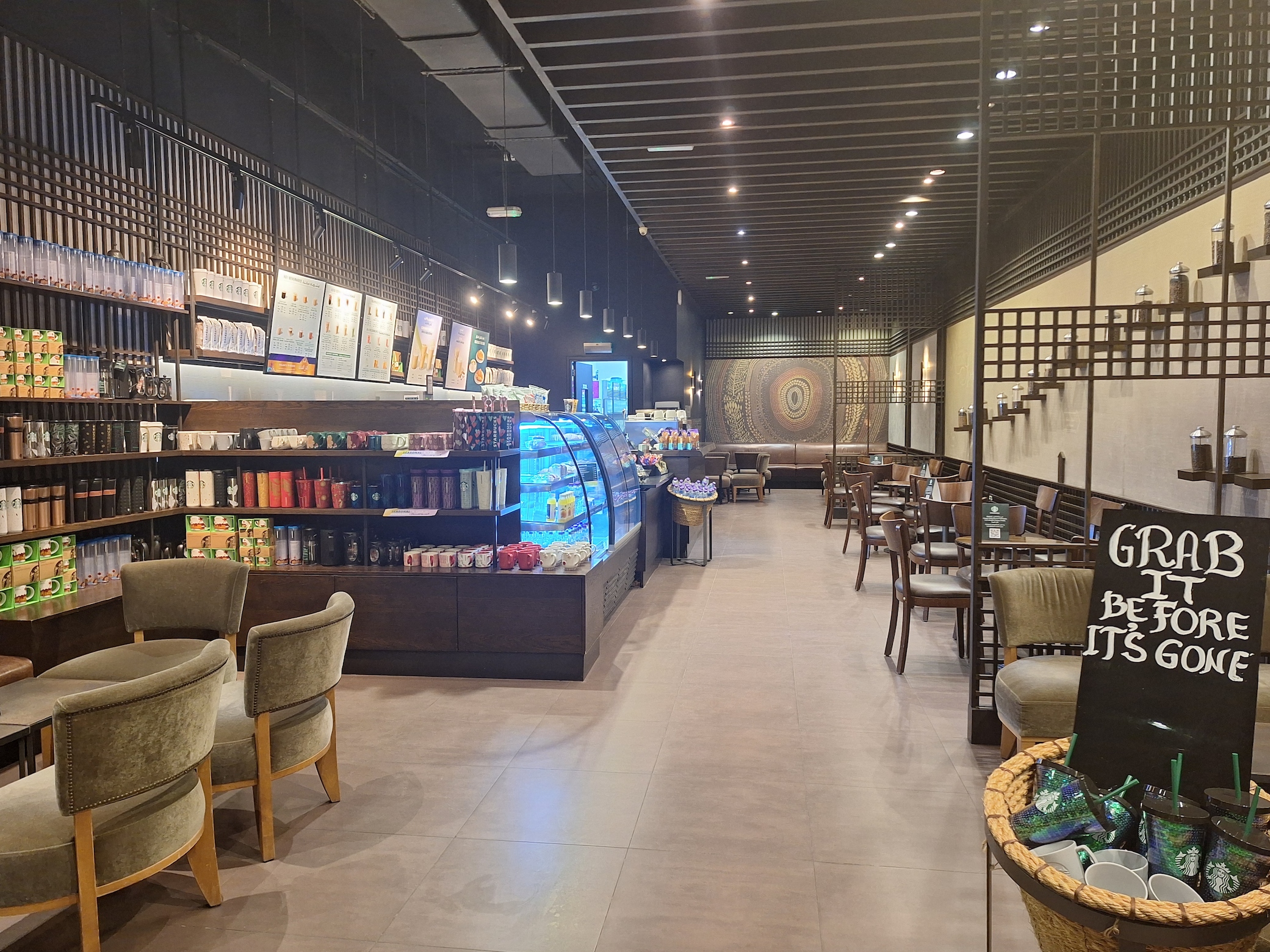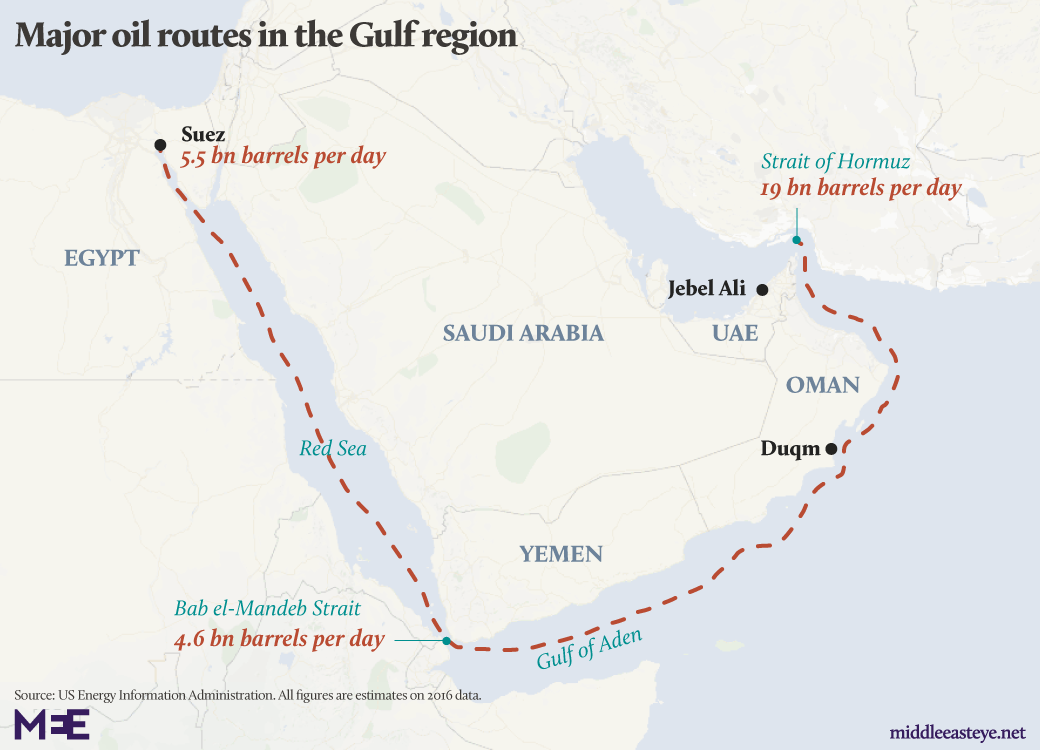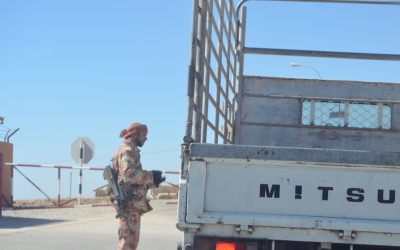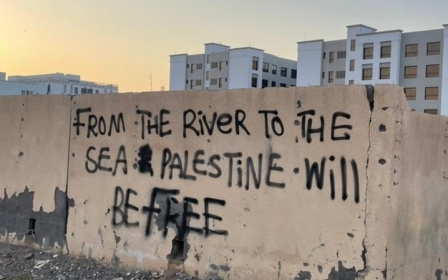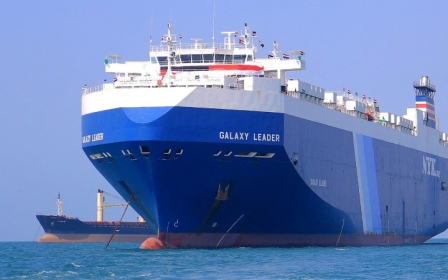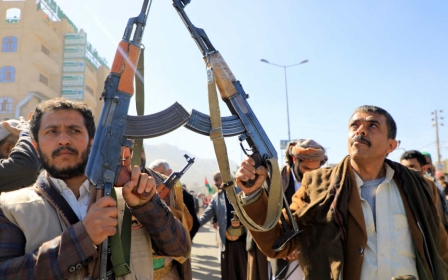Gaza, Yemen and the Red Sea: Why Omanis are turning against the West
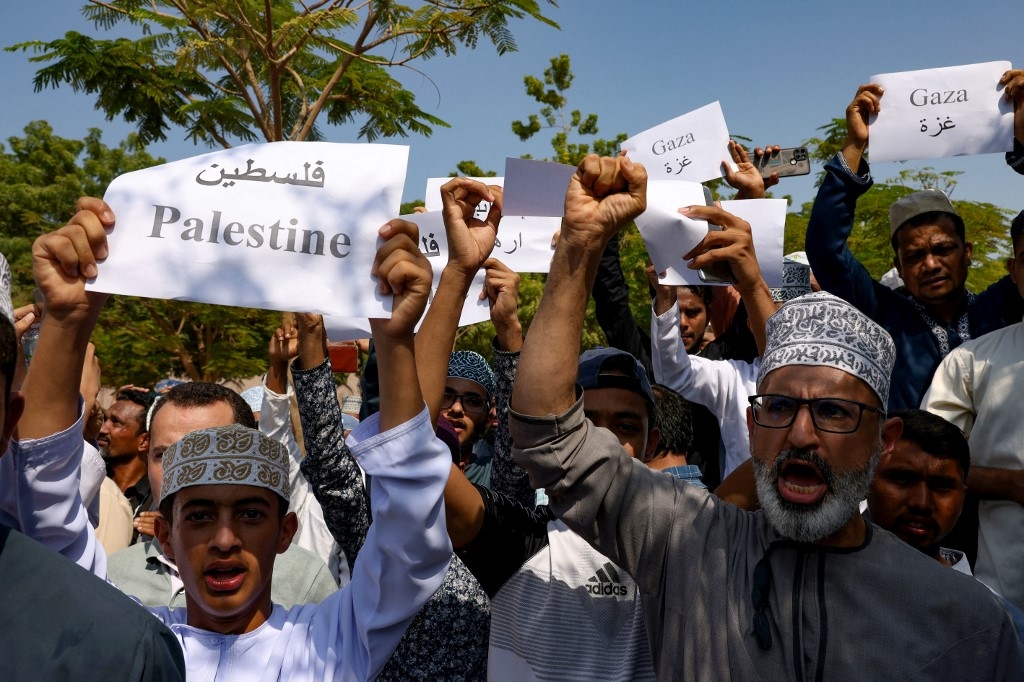
The mood in Muscat these days, as I encountered on a recent visit, is decidedly anti-western. This is Oman, so it comes with unfailing politeness, but the US- and UK-backed war Israel is waging against Palestinians in Gaza has turned popular opinion against the sultanate’s western allies.
“The problem with the western countries is they make a bad picture of the Arab and Muslim people. This is not fair,” says Qassim, a car repair workshop owner from Muscat, who also blamed the US for arming Israel in its war on Palestinians.
Muscat, where I lived a decade ago, is expanding and modernising, with no apparent sign of the European cost of living crisis.
Lina Shehadeh, a Palestinian living in Oman who wears her keffiyeh proudly over her right shoulder, told MEE: “Palestine is deeply rooted in Omanis, it’s not a fad that just started today. When you talk to Omanis, all of them say that’s what we learnt in kindergarten, the Palestinian map and flag is imprinted, they teach them that - you see pictures of kids drawing the flag [at school].”
The most outspoken senior figure voicing popular views about the war in Gaza is Oman’s grand mufti, Sheikh Ahmed bin Hamad al-Khalili. In November he welcomed the Houthis’ seizure of a cargo ship in the Red Sea.
Khalili said in a post on X that he supports the Houthis’ “jihad” and called on “the entire brotherly Yemeni people to rally around this great religious principle in support of the oppressed and persecuted among our brothers [in Palestine]”.
This is not the position of the Omani government, a western ally that maintains unofficial but longstanding ties with Israel. But the mufti is one of the most popular figures in the country, and his pronouncements on the Gaza war and the Houthi blockade of the Red Sea are aligned with large segments of popular opinion.
The power dynamic between the new sultan, Haitham bin Tariq, who came to power on the death of Sultan Qaboos bin Said in 2020, and the mufti, who has been in position for decades, gives the latter a degree of independence from the government, observers say. His strong pro-resistance statements have also gained popularity outside Oman.
Middle East Eye approached the Omani foreign ministry and the grand mufti’s office in Muscat for comment, but they both declined.
A consumer economic boycott of western goods is popular and widespread in Oman, hitting the likes of Starbucks, Carrefour and McDonald’s. In October there were rare protests in Muscat in solidarity with Palestinians in Gaza, as Israel's war on the strip intensified.
Oman’s balancing act between maintaining its relationship with the West while giving vent to popular anger over the Gaza war has been reflected in a recent speech in Oxford by Foreign Minister Sayyid Badr Al Busaidi.
Busaidi said last month that, like its neighbours, Oman was suffering the consequences of the crisis in Gaza, and a ceasefire was a humanitarian and strategic necessity. He also called for an emergency international conference to recognise a Palestinian state.
'Palestine is deeply rooted in Omanis, it’s not a fad that just started today'
- Lina Shehadeh, a Palestinian in Muscat
Pointedly, he said that Hamas cannot be eradicated - as Israel has been discovering in five months of bombing Gaza to rubble: “Movements of national liberation like Hamas are too deeply rooted in their communities. Their cause will be kept alive however many militants die. So, if there is ever to be peace, the peacemakers have to find a way to talk to them. And to listen.”
Busaidi criticised the western assumption that the people of the Middle East were trapped by sectarian logic and incapable of making the sophisticated judgments that people of the West were used to making, adding that this view was mistaken and condescending. “Pluralism is not the privilege of a western elite," he said, "it is a vital part of the history and present reality of the Arab world.”
The comments were clearly directed at Oman’s US and UK allies, which have proscribed Hamas and backed Israel’s war to eliminate the group from Gaza, which has failed to achieve its objective while killing tens of thousands of people, mostly women and children.
Maintaining the UK alliance
On the surface, relationships between the UK, the former colonial power, and Oman remain strong, with the UK building a new training base near Oman’s port of Duqm and expanding its naval base there. Next to the British base is the commercial container port, being built mostly with Chinese money.
While Oman has condemned Israeli atrocities in Gaza and opposed air strikes on the Yemeni Houthis, the country remains a key node in UK and US military presence in the Gulf.
The UK remains the top investor in Oman, although this is predominantly in the oil and gas sector, where the UK has long enjoyed preferential rights for exploration and export of oil and gas, thanks to its historic influence in Muscat.
By contrast, in trade terms, China is number one, with Oman exporting 80 percent of its oil and gas to China. Remarkably, the UK is no longer in the top 20 of trade partners with Muscat, according to Oman’s customs office trade figures from 2021, seen by MEE.
More worryingly for the UK, Omanis MEE spoke to in Muscat said that British support for the Israelis’ destruction of Gaza since October has made “the UK one of the most hated countries in the world” among ordinary Omanis, alongside the US.
The grand mufti is not the only senior Omani figure who has spoken up about geopolitical shifts and criticised the West. At a meeting in Moscow between Oman’s de facto crown prince, Theyazin bin Haitham Al Said, and Russian President Vladimir Putin in December, the prince, son of the sultan, said: "I share all your [Putin's] assessments of the current international situation, primarily with regard to the need to end the current unfair world order and the dominance of the West, as well as to build a new, fair world order, economic relations without double standards.”
This was hardly reported in western media.
On 12 January, when the US and UK launched their first air strikes on Yemen, Oman declared a no-fly zone for all western military aircraft en route to Yemen, Al Jazeera reported.
The number of mutual diplomatic visits between Oman and the UK - with Foreign Secretary David Cameron going to Muscat in late January, Busaidi's visit to the UK, and then a “private” visit by Sultan Haitham to the UK in late February - is a sign that both sides wish to ensure that tensions over UK support for Israel’s war and its strikes on Yemen do not negatively impact this historic relationship.
Oman’s role in Red Sea crisis
The Red Sea crisis places Oman in a special position regards maritime trade through the key shipping route along its coast and up through the Bab el-Mandeb strait into the Red Sea.
With western shipping, especially vessels from the US and UK, being targeted by the Houthis, western-bound container ships are docking in Salalah, run by Danish firm Maersk, which has been using the southern Omani port to redirect a lot of its cargo.
Shehadeh, who is vice president of communications at Oman ports company Asyad, tells MEE: “We know that a lot of ships, even if they don’t have direct ties with the US or other western nations, are stopping [in Salalah]… they have a lot of trepidations to go through the Red Sea.”
In normal times, ships would stop at Jeddah on their way up the Saudi Red Sea coast; but due to the crisis, Salalah is reportedly at full capacity and there is a lot of congestion at the port.
“They are using Salalah for trans-shipment instead of stopping in Jeddah," says Shehadeh. "It’s safer not to stop in the Red Sea… or to stop in Salalah or Sohar.”
Containers can also be moved to road shipment, and Oman’s Asyad facilitates this within the Gulf Cooperation Council (GCC), says Shehadeh.
“Also, there’s a lot of due diligence, at least from a commercial side, that [means] we look at which ships are stopping at Salalah… Any ships that are redirected to Salalah, we need to know.”
Ships can go under flags of convenience in an attempt to hide ownership, as has been shown with Iran’s evasion of US sanctions for its oil exports. (That has not stopped the Houthis from targeting ships based on open-source information, whether correct or not.)
Oman’s relationship with the Ansar Allah administration in Sanaa is longstanding, and so its shipping will not be targeted. Omani officials hosted talks between the Houthis and Saudis helping to end the war in Yemen, accompanying the first public Saudi delegation to Sanaa in April 2023 and the first public Houthi delegation to Riyadh in September.
These days, unlike in the recent past, Oman and Saudi Arabia are in greater alignment over their regional positions, as in Yemen, where the Saudis reached a truce agreement with the Houthis after eight years of war, and where Riyadh also sees eastern Yemen as a gateway for oil pipelines into the Indian Ocean.
Mahra, the most eastern part of Yemen on Oman’s border, is also supported by Oman, with senior figures including the son of the last Mahra sultan given Omani citizenship.
Oman does not align with the UAE's vision of controlling south Yemen through the separatist, Sunni forces in Aden, an Omani analyst explained. “They want it to be unified, and they don’t want a separatist group in the south.” Oman faced its own separatist uprising in Dhofar just over the border, half a century ago.
Houthis' popularity
Since their blockade of the Red Sea for all Israeli-linked shipping, widened to include most western shipping, following the US-UK air strikes against them, Ansar Allah in the north have become the most popular leaders in the Arab world, the Omani analyst explained.
How do young Omanis see the future, and how do they view the West in light of the Gaza war, US-UK air strikes on Yemen, and clashes in the Red Sea?
The war in Gaza 'is making it very convincing that the only way to change this current unjust situation is to have a movement like the Houthis, Hezbollah, Hamas'
- Omani analyst
The feeling that things can’t be changed peacefully, that there is no justice, was created by the inaction of Arab governments over Gaza, and the role of the US in supporting Israel’s brutal war. “It will have consequences, even in a country like Oman,” warns the analyst.
“Because official Arab governments do not do anything, and this is very dangerous…[The war in Gaza is] creating an atmosphere where you are making it very convincing that the only way to change this current unjust situation is to have a movement like the Houthis, Hezbollah, Hamas - if you are not violent enough, then no one will respect you; if you just try to be peaceful, there is no way that you will change anything.”
According to a January survey of Arab opinion on the war, most people in the region want their governments to boycott Israel and provide aid to Gaza, but have negative views of Arab regimes' positions on the war: two-thirds saw the policies of the UAE and Saudi Arabia on Gaza as bad or very bad. A big majority saw the US and then Israel as the biggest threats. Most respondents (59 percent) believe peace with Israel is impossible.
That means more war.
“The same rhetoric that was spreading during the invasion of Iraq is coming back," says the analyst. "It’s the same atmosphere where Isis became popular, where Hezbollah became popular in 2006 [following Israel's attack on Lebanon], and after that, all these figures like [Islamic State of Iraq leader Abu Musab] Zarqawi, Osama bin Laden, benefited from that atmosphere, which was created by these corrupted and weak governments, and by the support of the US - the feeling that you can’t change things peacefully.
“The whole world should be concerned about this situation, because it will have an aftermath and consequences.”
The views expressed in this article belong to the author and do not necessarily reflect the editorial policy of Middle East Eye.
Middle East Eye propose une couverture et une analyse indépendantes et incomparables du Moyen-Orient, de l’Afrique du Nord et d’autres régions du monde. Pour en savoir plus sur la reprise de ce contenu et les frais qui s’appliquent, veuillez remplir ce formulaire [en anglais]. Pour en savoir plus sur MEE, cliquez ici [en anglais].



